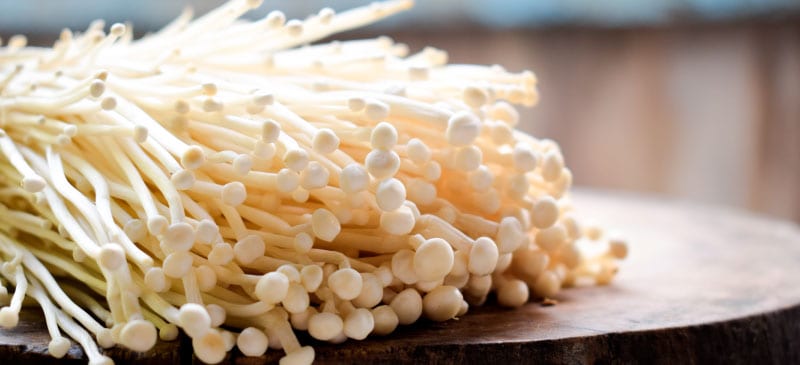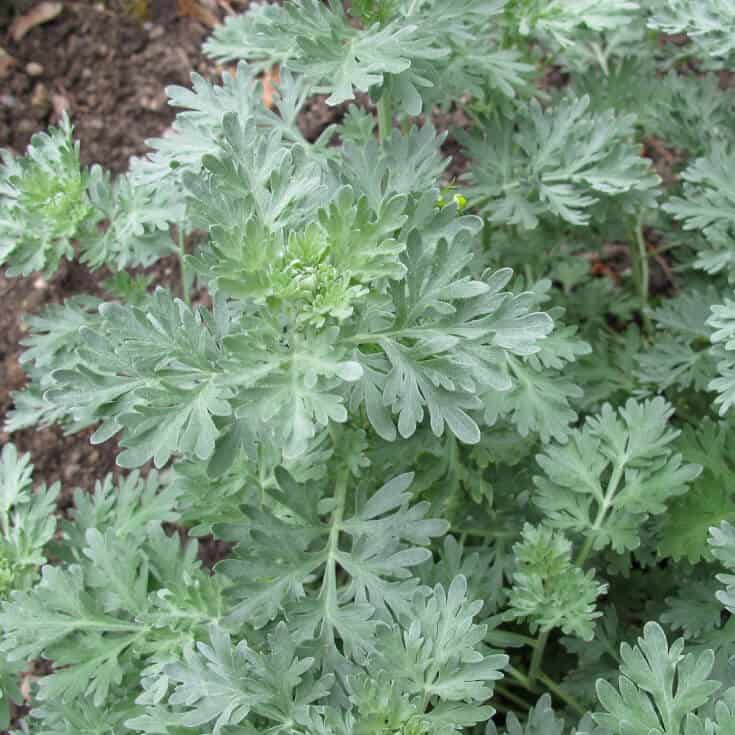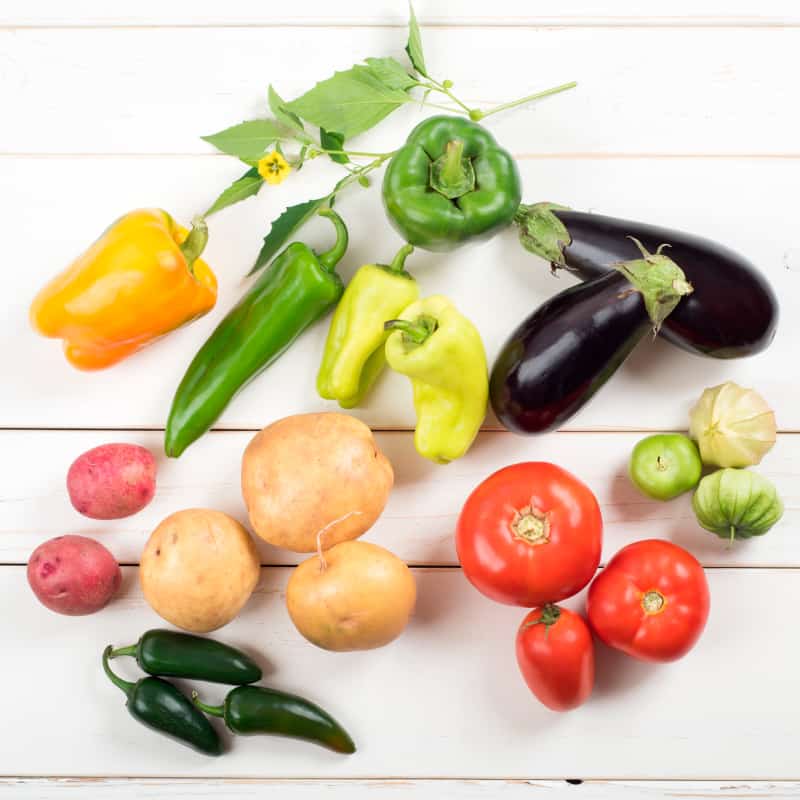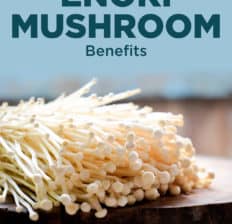This Dr. Axe content is medically reviewed or fact checked to ensure factually accurate information.
With strict editorial sourcing guidelines, we only link to academic research institutions, reputable media sites and, when research is available, medically peer-reviewed studies. Note that the numbers in parentheses (1, 2, etc.) are clickable links to these studies.
The information in our articles is NOT intended to replace a one-on-one relationship with a qualified health care professional and is not intended as medical advice.
This article is based on scientific evidence, written by experts and fact checked by our trained editorial staff. Note that the numbers in parentheses (1, 2, etc.) are clickable links to medically peer-reviewed studies.
Our team includes licensed nutritionists and dietitians, certified health education specialists, as well as certified strength and conditioning specialists, personal trainers and corrective exercise specialists. Our team aims to be not only thorough with its research, but also objective and unbiased.
The information in our articles is NOT intended to replace a one-on-one relationship with a qualified health care professional and is not intended as medical advice.
Enoki Mushroom Benefits for Heart Health, Immunity & More
November 2, 2022

Enoki mushrooms are an unfamiliar ingredient to many, including some mushroom enthusiasts and culinary connoisseurs. This edible mushroom is set apart from others due to its unique flavor, interesting appearance and impressive nutrient profile. The enoki mushroom also has been linked to a number of different mushroom nutrition benefits and has been well-studied for its anti-cancer, immune-boosting effects.
Also known as the golden needle mushroom, lily mushroom, futu mushroom or Flammulina velutipes, enoki is a type of fungi that is common in Asian cuisine. It differs in appearance from other edible mushrooms and is typically found in clusters with long, white stalks and small caps on the ends.
Not only is this mushroom incredibly versatile and easy to incorporate in your cooking, but it’s also packed with essential nutrients and delivers a punch of antioxidants, fiber and B vitamins in each serving. In many traditional forms of medicine, enoki mushrooms have also historically been used to treat stomach problems, manage blood pressure levels and promote liver health.
What else is enoki mushroom good for, how should you enjoy it and why should you consider including it in your diet? Let’s take a closer look at this medicinal food and a few of the ways it can impact your health.
Benefits and Uses
Enoki mushrooms are available in both wild and cultivated forms, both of which can be used in a variety of different enoki mushroom recipes. Wild mushrooms are typically light brown in color and have shorter stems with large caps. You can usually find enoki mushroom growing at the base of several different types of trees, including Chinese hackberry, mulberry, persimmon or ash trees.
Cultivated forms can be found in specialty markets or purchased online. They differ from wild forms because of their white color and longer stem, which is due to the lack of light exposure and the carbon dioxide-rich environment in which they are grown.
The enoki mushroom taste is typically described as mild, yet slightly sweet and fruity. It tends to have a firm, solid texture. When selecting your mushrooms, ensure they’re fresh; steer clear of stems that are discolored, slimy or rubbery; and wash thoroughly prior to consumption.
There are plenty of ways to use the mushroom enoki, like cooking in soups, ramen, stir-fry, noodles and omelets. Enoki is a great addition to any vegetarian dish, and these mushrooms pair well with meat recipes, including chicken, beef or fresh fish.
Here are a few simple recipes to help get you started:
- Enoki Mushroom Recipe Stir-Fry: This stir-fry is made with brown rice and cooked nutrient-rich Swiss chard. For extra flavor, you can add a bit of soy sauce or a soy sauce substitute like tamari.
- Korean Enoki Mushroom Pancakes: These enoki pancakes, or fritters, are easy to make at home and just take a few minutes.
- Japanese Enoki Mushroom Recipe with Udon Noodles: This noodle dish is made with vegetables, herbs and soy sauce. For a boost of protein, you can try cooking it with chicken, beef or your favorite protein, too.
Now that you know how to cook enoki or add it to easy dishes at home, you can get excited about the mushroom’s many, many heath benefits. Here’s a rundown on why exactly you’ll want to top off your meals with these nutrient-dense fungi:
1. Highly Nutritious
Enoki mushrooms are low in calories yet packed with a long list of important vitamins, minerals and antioxidants. They’re especially high in B vitamins like niacin, thiamine and riboflavin, all of which are essential to brain function, energy production, DNA synthesis and more.
Enoki mushrooms also contain a good amount of antioxidants, which are beneficial compounds that help neutralize harmful free radicals to protect against chronic disease. An animal study published in BioMed Research International found that the mushrooms are an especially good source of antioxidants like quercetin, catechin, gallic acid and caffeic acid.
One cup (about 65 grams) of sliced enoki msuhrooms contains approximately the following nutrients:
- 24 calories
- 5 grams carbohydrates
- 1.7 grams protein
- 0.2 gram fat
- 1.8 grams dietary fiber
- 4.6 milligrams niacin (29 percent DV)
- 0.15 milligram thiamine (12 percent DV)
- 0.1 milligram riboflavin (10 percent DV)
- 31 micrograms folate (8 percent DV)
- 0.07 milligram vitamin B6 (4 percent DV)
2. Supports Heart Health
One of the most promising enoki mushroom benefits is its powerful impact on heart health. In fact, the animal model published in BioMed Research International referenced above found that hamsters who consumed enoki mushroom extract had lower levels of total cholesterol, triglycerides and bad LDL cholesterol, all of which are risk factors for heart disease.
3. May Help Fight Cancer Cells
In vitro studies and animal models have found that enoki mushrooms could help fight against the growth and development of cancer cells. In mice, for example, a specific protein in the mushrooms was shown to decrease tumor activity in liver cancer cells.
Similarly, another study in the journal Oncology Reports noted that enoki mushrooms effectively blocked the growth of breast cancer cells in vitro.
Keep in mind, however, that more research is needed to confirm the potential enoki mushroom health benefits and understand how they may impact cancer development in humans.
4. High in Fiber
Each serving of enoki mushrooms packs a serious punch in terms of nutrition. Not only do these mushrooms bring a megadose of key vitamins and minerals to the table, but enoki mushrooms are also high in fiber, squeezing 1.8 grams into a single cup.
Fiber is important for several aspects of health, but it’s especially important for digestion. Studies show that eating more fiber can protect against issues like constipation, hemorrhoids, intestinal ulcers, diverticulitis and gastroesophageal reflux disease (GERD).
5. Boosts Immune Function
Some research has found that enoki mushrooms contain a protein compound that could help bump up immunity. In fact, one animal model out of Taiwan actually demonstrated the immune-enhancing properties of the enoki mushroom, noting that it was effective at increasing immune function and reducing tumor growth when administered to mice.
Risks and Side Effects
Despite the numerous advantages of eating this fungi, there are some downsides that you should consider as well. While generally considered safe for most adults, those with a mushroom allergy should avoid consuming enoki mushrooms. Additionally, if you experience symptoms like swelling, hives or itching, discontinue use, and talk to your doctor.
If picking mushrooms in the wild, be sure not to confuse enoki mushrooms with Galerina marginata, a type of poisonous mushroom that is similar in appearance. Unlike enoki mushrooms, however, this type of mushroom has brown caps with a ring on the stalk.
It’s also important to prepare mushrooms properly to avoid adverse side effects. Many people wonder: Can you eat raw enoki mushrooms, and do you have to wash them? Eating them raw is not recommended; instead, cooking enoki and adding them to sauce, ramen, rice dishes and other preparations is safest.
You’ll know they are fresh when they are light and dry, with a firm texture. To extend their shelf life, store them in a bag in the refrigerator. Although it may depend on a variety of different factors, these mushrooms can typically last around seven to 10 days with proper storage.
Conclusion
- Enoki mushroom is a type of fungi that is common in Asian cuisine. Not only is it incredibly versatile and easy to incorporate in your cooking, but it’s also packed with essential nutrients, delivering powerful antioxidants, fiber and B vitamins in each serving.
- In traditional medicine, enoki mushrooms have been used to treat stomach problems, manage blood pressure levels and promote liver health. Today, you can add these edible fungi to any dish for an extra boost of nutrients.
- This versatile and nutritious food also helps boost immune system function and heart health, while aiding digestion.















